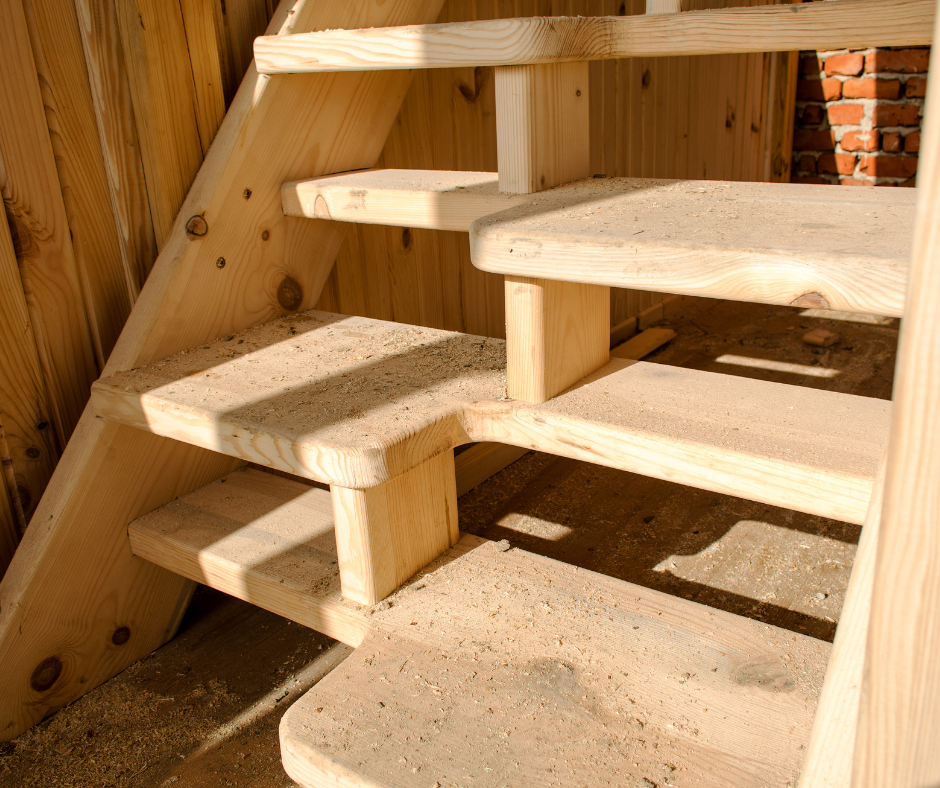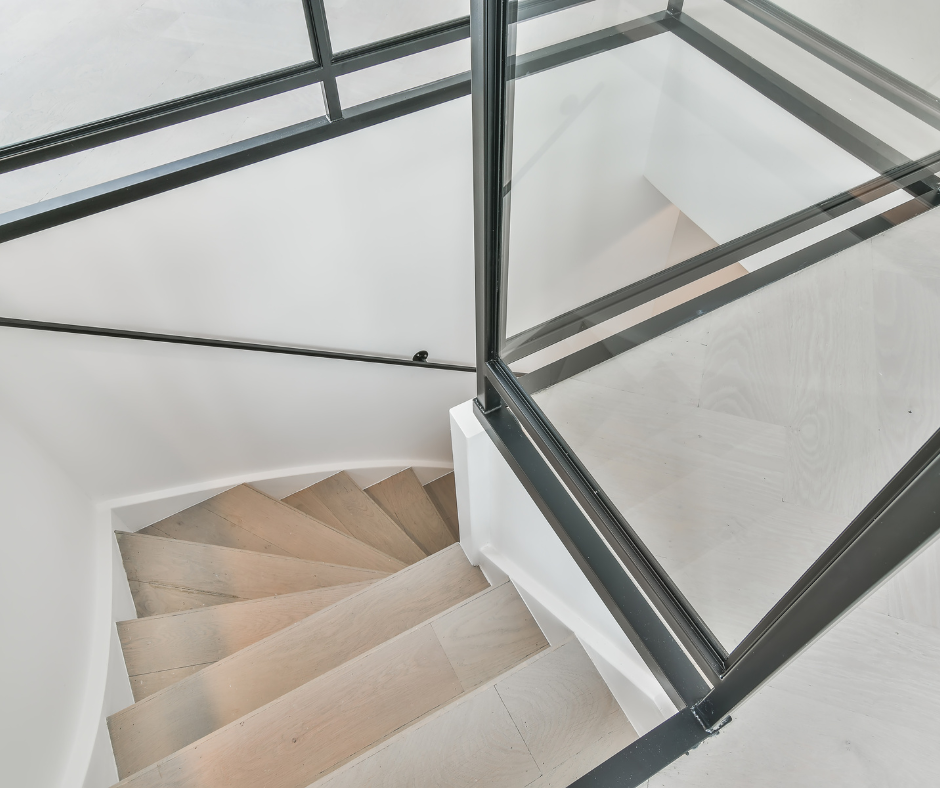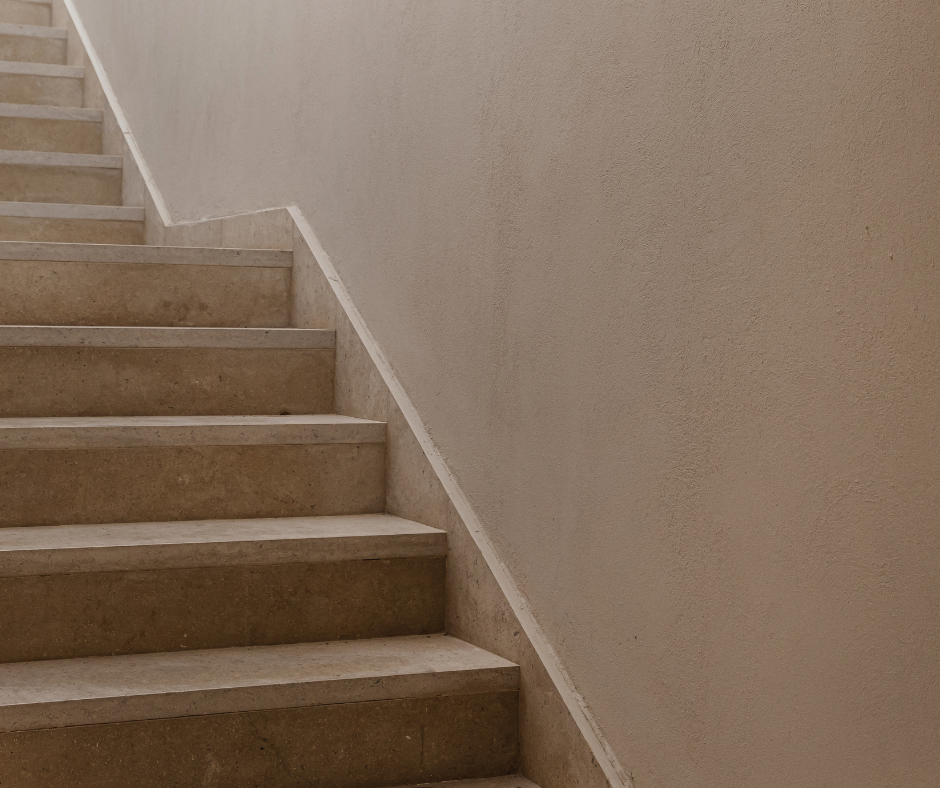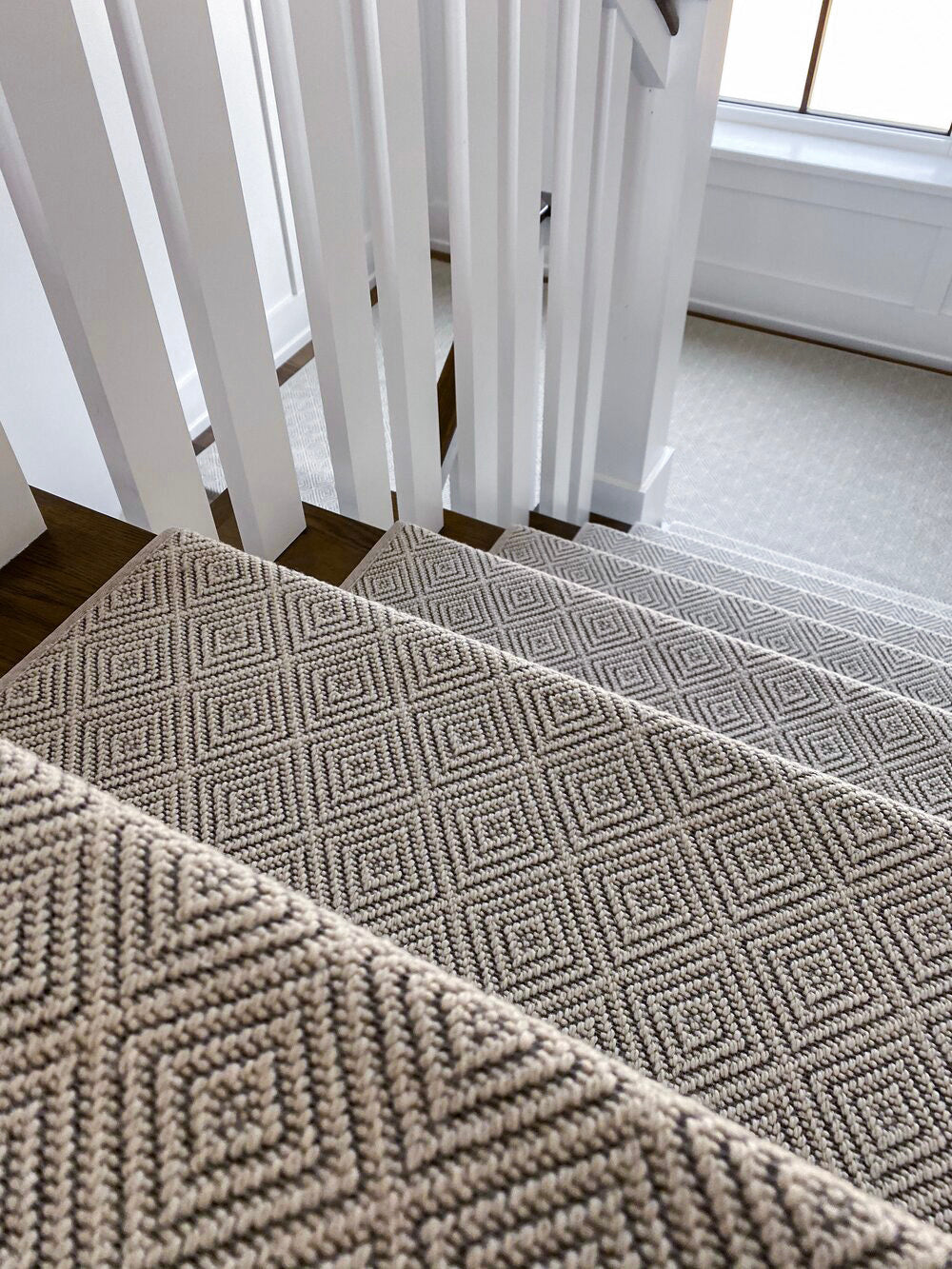Alternating tread stairs are a smart solution for maximizing space in tight areas, but getting the alternating tread stair dimensions right is essential for safety and usability.
These stairs typically have a steeper incline of 50 to 70 degrees, with step depths ranging from 8 to 11 inches and riser heights between 8 to 10 inches.
If you're considering carpet stair treads, you'll need a custom fit to accommodate the unique staggered step design.
This guide will walk you through the key measurements, regulations, and best materials for both indoor and outdoor applications.
You'll learn how to optimize safety and comfort while maintaining a sleek, modern look.
Whether you're upgrading a home, office, or industrial space, understanding the right stair dimensions ensures a functional and compliant installation.
What Are Alternating Tread Stairs?
Alternating tread stairs are a space-saving staircase solution designed to be steeper than standard staircases while still allowing for safe foot placement.
Their design features staggered steps, where each foot is assigned its own step, rather than overlapping with the opposite step like a conventional staircase.
This unique structure allows them to fit into tight spaces, making them an excellent choice for:
-
Lofts and attics where space is extremely limited
-
Compact apartments needing vertical access without consuming too much floor space
-
Industrial and commercial settings where efficient movement between levels is necessary
-
Outdoor access points such as backyard lofts or treehouses
Alternating tread stairs work exceptionally well in environments where stair dimensions must be carefully optimized to meet space constraints.
The Best Angle for Alternating Tread Stairs
Since alternating tread stairs are designed to conserve horizontal space, they typically have a steeper incline compared to standard staircases.
Standard Staircase vs. Alternating Tread Stairs
A traditional staircase usually has an angle of 30 to 45 degrees, ensuring a gradual and comfortable incline for users.
However, alternating tread stairs generally fall between 50 to 70 degrees, making them significantly steeper.
This steep angle is necessary for compact spaces, but it also means that users need to be cautious when ascending and descending.
Building Codes and Regulations
Following local building codes is critical when installing alternating tread stairs.
Most codes set maximum steepness limits and safety requirements for risers, treads, and railings.
Ensuring compliance not only improves safety but also guarantees that the stairs meet legal construction standards.
Before installing alternating tread stairs, check with your local building authority to determine the specific stair dimensions allowed in your area.
How Steep Can Alternating Tread Stairs Be?
Alternating tread stairs can be as steep as 70 degrees, significantly steeper than conventional staircases.
While this helps save space, the steepness can impact usability, particularly for:
-
Children who may find it challenging to navigate the stairs safely
-
Older adults who may struggle with balance on steeper inclines
-
Individuals carrying heavy items who need extra caution while using the stairs
Optimizing Steepness for Usability
If your alternating tread stairs will be used frequently, consider designing them with a less steep incline whenever possible.
The balance between space-saving design and usability is crucial.
Additionally, adding safety features such as:
-
Sturdy handrails for support
-
Non-slip treads to enhance grip
-
Proper lighting to improve visibility
These elements can significantly enhance the safety of alternating tread stairs, especially in steeper designs.
Standard Alternating Tread Stair Dimensions
To ensure optimal safety and efficiency, alternating tread stairs typically adhere to specific stair dimensions.
Step Depth
The depth of each step on an alternating tread staircase is narrower than traditional stairs, usually ranging from 8 to 11 inches.
This ensures that each step comfortably supports the user’s foot without wasting excess space.
Riser Height
Unlike standard staircases, alternating tread stairs generally have taller risers, with heights between 8 to 10 inches.
This design helps reduce the overall footprint of the stairs, making them ideal for tight spaces.
Proper stair dimensions ensure that alternating tread stairs are both functional and compliant with safety standards.
Outdoor Tread Stair Dimensions
Alternating tread stairs can also be used outdoors, but additional factors must be considered to ensure they withstand weather conditions and environmental exposure.
Choosing the Right Materials
Outdoor stair dimensions must accommodate weather-resistant materials that prevent deterioration over time.
Common material choices include:
-
Metal (such as galvanized steel or aluminum) for rust resistance
-
Treated wood for durability in outdoor environments
-
Composite materials for a balance of strength and aesthetic appeal
Selecting the right materials ensures that outdoor stairs remain safe and durable in all weather conditions.
Adjusting Dimensions for Outdoor Use
Unlike indoor staircases, outdoor stair dimensions may need slight adjustments for stability and usability.
-
Wider steps can improve stability, especially in areas prone to rain or snow
-
Slightly lower risers may be beneficial for outdoor accessibility
-
Anti-slip coatings can enhance safety, reducing the risk of slipping on wet surfaces
These considerations help improve the longevity and usability of outdoor alternating tread stairs.
Safety Features for Alternating Tread Stairs
Because alternating tread stairs are steeper and narrower than traditional staircases, they require additional safety enhancements to ensure ease of use.
Handrails and Guardrails
Adding sturdy handrails on both sides of the staircase improves stability and balance for users.
In commercial and industrial applications, guardrails are often required by building codes to prevent accidental falls.
Non-Slip Treads
One of the most effective ways to improve safety and traction on alternating tread stairs is by installing non-slip treads.
These can be made of:
-
Rubberized grip surfaces
-
Textured metal or composite materials
-
Custom carpet stair treads for indoor applications
These enhancements help reduce the risk of slips and falls, especially in high-traffic areas.
Benefits of Alternating Tread Stairs
Alternating tread stairs save space while providing safe and efficient movement between levels.
Their unique design offers both practicality and modern style.
Maximizing Space
The greatest advantage of alternating tread stairs is their ability to maximize space efficiency. Their compact footprint allows them to be installed in areas where standard stair dimensions would take up too much room.
Modern and Unique Design
Alternating tread stairs also offer an aesthetic appeal, making them an eye-catching architectural feature in modern homes, offices, and loft spaces. Their sleek and space-efficient design can add a contemporary touch to any setting.
Customization Options
Because alternating tread stairs must be carefully designed to fit specific spaces, they offer a wide range of customization options, including:
-
Material selection to match existing décor
-
Step width and riser height adjustments
-
Carpet stair treads for comfort and style
Customizing these stairs ensures they align with both functional needs and personal style.
Steps To Success
Alternating tread stairs are an innovative solution for maximizing stair dimensions in compact spaces.
Their unique steep design and space-saving layout make them an excellent choice for residential, commercial, and industrial applications.
When planning alternating tread stairs, it’s crucial to consider step depth, riser height, and materials, especially for outdoor stair dimensions where durability and safety are key concerns.
For homeowners looking to enhance both safety and design, custom carpet stair treads can add both comfort and visual appeal.
Contact Oak Valley Designs
For high-quality, custom stair treads tailored to alternating tread stairs, Oak Valley Designs provides expert solutions designed for both indoor and outdoor applications.
-
Website: https://oakvalleydesigns.com/
-
Phone: 706.331.0315
-
Email: info@oakvalleydesigns.com
-
Address: 30 River Ct SW Bldg E Cartersville, Ga 30120




